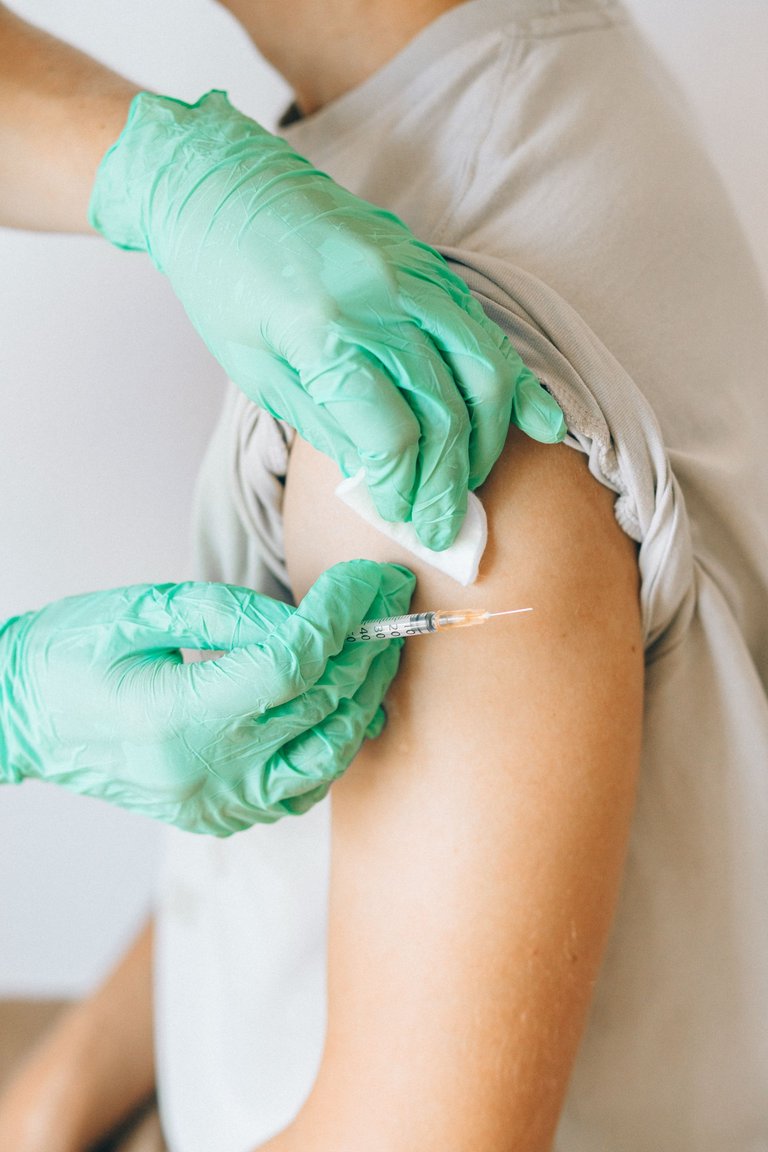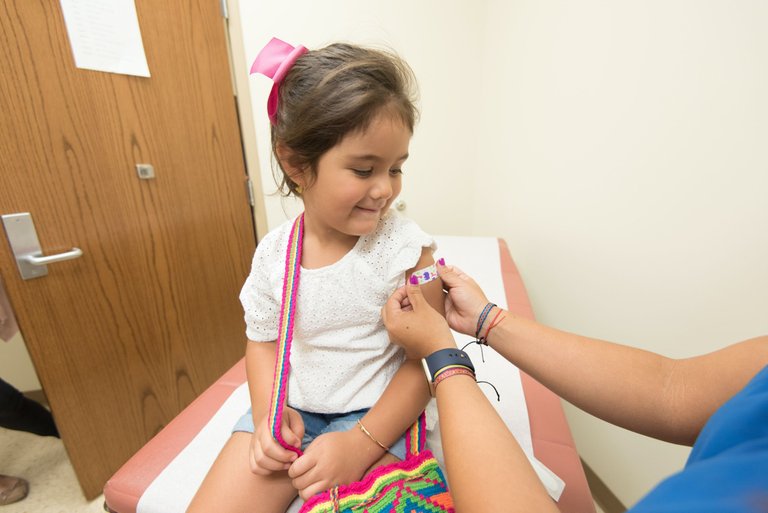Debunking Myths, the Surprising Truth About Vaccinations Unveiled!
In an era filled with information, misinformation, and skepticism, the importance of vaccinations remains a critical topic for public health. Today's discussion ventures into the realm of immunization, unveiling the significance of vaccines in the battle against diseases while dispelling common myths that shroud this vital aspect of healthcare. Join us on this enlightening journey to understand the true importance of vaccinations for public health.
Navigating the Vaccination Landscape
Vaccinations have long been hailed as one of the most successful public health interventions in history. They have played a pivotal role in eradicating deadly diseases, saving countless lives, and transforming the way we perceive healthcare.
At the heart of vaccinations lies a powerful concept; the body's ability to build immunity. Vaccines harness this natural defense mechanism by introducing harmless or weakened versions of a pathogen into our bodies, prompting our immune system to create antibodies. These antibodies act as bodyguards, ready to fend off the real pathogen if we ever encounter it. It's like giving your immune system a sneak peek at the enemy's playbook.
Debunking Myths; Separating Fact from Fiction
Myth #1: Vaccines Cause Autism
Fact: Extensive research has found no credible link between vaccines and autism. The initial study that suggested this connection has been thoroughly discredited.
The myth linking vaccines to autism can be traced back to a 1998 study published by Andrew Wakefield, a British doctor. His research claimed a connection between the MMR (measles, mumps, and rubella) vaccine and autism. This study set off a global panic, leading to a decline in vaccination rates and outbreaks of vaccine-preventable diseases.
However, subsequent investigations uncovered serious flaws and ethical concerns in Wakefield's research. His study involved only twelve children, lacked proper controls, and relied on parental recollections. Moreover, Wakefield had undisclosed financial conflicts of interest. The scientific community discredited his work, and his medical license was revoked.
Extensive studies involving millions of children worldwide have since confirmed that vaccines, including the MMR vaccine, do not increase the risk of autism. The consensus among experts is clear: there is no credible scientific link between vaccines and autism.
Myth #2: Vaccines Contain Harmful Toxins
Fact: Vaccines contain minute amounts of preservatives to ensure their safety and efficacy. The levels are well below harmful thresholds and pose no significant risk.
Concerns about vaccine ingredients often revolve around preservatives, such as thimerosal (a mercury-containing compound) and aluminum salts. It's essential to understand that these substances are used in vaccines to prevent contamination and maintain their effectiveness during storage.
Thimerosal, which contains a type of mercury called ethylmercury, is used as a preservative in some vaccines. Ethylmercury is different from methylmercury, a harmful form of mercury found in some fish. Ethylmercury is processed and eliminated from the body more quickly, making it far less toxic. Nonetheless, due to public concerns, thimerosal has been removed or reduced to trace amounts in most childhood vaccines since the early 2000s.
Aluminum salts are added to some vaccines to enhance the body's immune response. The aluminum used in vaccines is in the form of aluminum salts, which are safe and have been used for decades in medical products.
The tiny amounts of these substances in vaccines are well below established safety limits. Numerous scientific studies have confirmed that the levels of these preservatives in vaccines pose no significant risk to human health. Vaccine safety is continually monitored, and any potential risks are rigorously assessed.
Myth #3: Natural Infection is better than Vaccination
Fact: Natural infection can lead to severe illness, complications, and death. Vaccination offers a safer way to build immunity.
Some argue that experiencing a natural infection is better for building immunity than receiving a vaccine. While it's true that surviving an infection can result in immunity, this approach is fraught with risks.
Many vaccine-preventable diseases can lead to severe illness, complications, and, in some cases, death. For instance, contracting measles can result in pneumonia, encephalitis (brain swelling), and even death. Chickenpox can lead to bacterial infections, skin infections, and pneumonia. Natural infections expose individuals to the full virulence of a pathogen, which can overwhelm the immune system.
Vaccines, on the other hand, contain weakened or inactivated forms of pathogens or pieces of pathogens. They stimulate the immune system without causing the disease itself. This allows the body to build immunity without the associated risks of severe illness, complications, or death.
Choosing vaccination over natural infection is the safer and more responsible way to protect yourself and others from potentially life-threatening diseases.
Myth #4: Vaccines Are Only for Children
Fact: Vaccines are essential for people of all ages. They protect against a range of diseases, from childhood to adulthood.
Vaccination is not limited to childhood. While childhood vaccines are critical to protect against diseases like measles, mumps, rubella, and polio, vaccines also play a crucial role in adult health.
Adults need vaccines to maintain immunity, especially for diseases like influenza, tetanus, diphtheria, pertussis (whooping cough), and shingles. Some vaccines, like the flu vaccine, are recommended annually, while others, like the tetanus-diphtheria-pertussis (Tdap) vaccine, require periodic boosters.
Additionally, certain vaccines are specifically recommended for adults based on their age, occupation, health status, travel plans, and other factors. For example, healthcare workers, travelers, and those with chronic medical conditions may require additional vaccinations.
These facts underscore the importance of informed decision-making when it comes to vaccinations. Public health relies on accurate information, science-based evidence, and responsible choices to protect individuals and communities from vaccine-preventable diseases.
The Power of Herd Immunity
Vaccination isn't just about personal protection; it's a communal effort. When a significant portion of a population is immunized, it creates a shield that prevents the disease from spreading easily. This safeguard is particularly crucial for those who cannot receive vaccinations due to medical reasons or are more susceptible to severe complications, such as infants and the elderly.
Vaccination in Action: Success Stories
Let's take a moment to celebrate the remarkable achievements of vaccination programs worldwide:
Smallpox: A Triumph of Vaccination
In 1980, the world celebrated a monumental victory in the history of medicine - the eradication of smallpox. This achievement stands as one of humanity's greatest accomplishments. The relentless use of the smallpox vaccine, along with effective surveillance and containment measures, led to the complete elimination of this highly contagious and deadly virus. Today, smallpox exists only in carefully controlled laboratory settings, illustrating the profound impact vaccines can have on public health.
Polio Eradication
Thanks to tireless vaccination campaigns, the world stands on the precipice of eliminating polio. Once a devastating disease that caused paralysis and death, it now lingers in only a few countries. This extraordinary achievement reflects the incredible power of vaccines and international collaboration. Efforts to reach every child, even in the most challenging and remote areas, have brought us to the verge of making polio the second human disease, after smallpox, to be eradicated from the face of the earth.
The Unsung Hero: Annual Flu Vaccination
While it might not grab headlines like the eradication of polio or smallpox, annual flu vaccinations play a crucial role in safeguarding public health. Influenza, a seemingly common illness, can have severe consequences, especially for vulnerable populations. Annual flu shots help prevent thousands of hospitalizations and flu-related deaths each year. They also reduce the strain on healthcare systems during flu seasons, ensuring that those who need medical attention receive it promptly. These vaccines undergo regular updates to protect against evolving strains of the flu virus, underscoring the adaptability and ongoing importance of vaccination in our modern world.
In these stories, we witness the profound impact of vaccines on our global health landscape. From the brink of polio eradication to the triumphant elimination of smallpox and the steady battle against seasonal influenza, vaccinations remain a cornerstone of public health.
These achievements stand as testament to the power of science, international cooperation, and the unwavering dedication of healthcare professionals and volunteers worldwide. As we continue to navigate new health challenges, these historical successes remind us of the incredible potential of vaccination to protect and save lives.
It's natural to have questions about vaccines. Addressing these concerns through open dialogue and providing accurate information is crucial to combat vaccine hesitancy. Always consult healthcare professionals for guidance and reliable information.
Vaccinations are not just about individuals; they're about communities, nations, and the global population. They are a testament to humanity's ability to conquer some of the deadliest diseases in history. By debunking myths, understanding the science, and embracing the power of immunization, we can all contribute to a healthier, safer world.






Congratulations @infinikxs! You have completed the following achievement on the Hive blockchain And have been rewarded with New badge(s)
Your next target is to reach 4750 upvotes.
You can view your badges on your board and compare yourself to others in the Ranking
If you no longer want to receive notifications, reply to this comment with the word
STOPCheck out our last posts:
Vaccination has done humanity more good than bad. Going through your post made me understand why most persons usually don't like taking vaccine but I think you omitted one point which is
I can't take vaccine because it is from the devil. Well done for informing people again that vaccine builds more immunity that contracting the disease first. Thank you for informing people that vaccine is not just for children alone. Thank you for reminding me again that 1980 was a remarkable year in health. Finally thank you for the history of the British doctor that lost his license due to false information about vaccine that led to death of many children that year. Thank you very much h for the post😍😍☺️☺️✌️✌️vaccine is from the devil? 😂, people can be hilarious, thanks Miracle for that marvelous input!